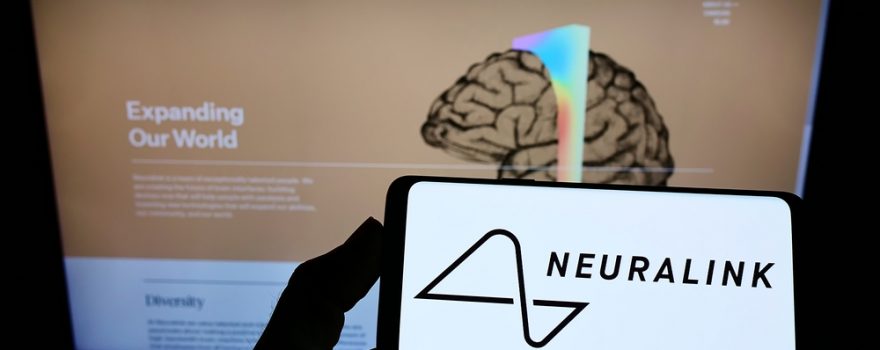
Neuralink, the company creating Elon Musk’s brain-computer interface, has received U.S. Food and Drug Administration (FDA) approval to conduct human trials, marking a significant step toward combining the human brain with a computer. This development came despite ongoing scrutiny related to alleged violations of the Animal Welfare Act.
Neuralink, founded in 2016, is set to revolutionize medical fields ranging from stroke rehabilitation to controlling neuroprostheses and even reprogramming or uploading memories into robots.
The technology works on the principle of converting the brain’s electrical impulses into digital signals through implanted electrodes, which enables communication with a computer. Due to the surgical nature of this interface, the FDA requires extensive safety testing, and Neuralink was the first company to receive approval for human trials.
Musk’s application was initially rejected due to, among other things, animal deaths during testing of a prototype brain-computer interface. Internal documents revealed more than 1,500 animal deaths during Neuralink’s development since 2018, leading to an investigation by the USDA.
The FDA also raised concerns about potential risks to humans during implantation, particularly regarding the device’s lithium battery, the migration of tiny wires in the brain, and the safe removal of the implant without damaging brain tissue. Despite these concerns, Neuralink’s approval marks a turning point in the development of brain-computer interfaces. The company has yet to begin recruiting volunteers for clinical trials, but this development underscores the promise of this revolutionary technology.

 Get in Touch
Get in Touch 


